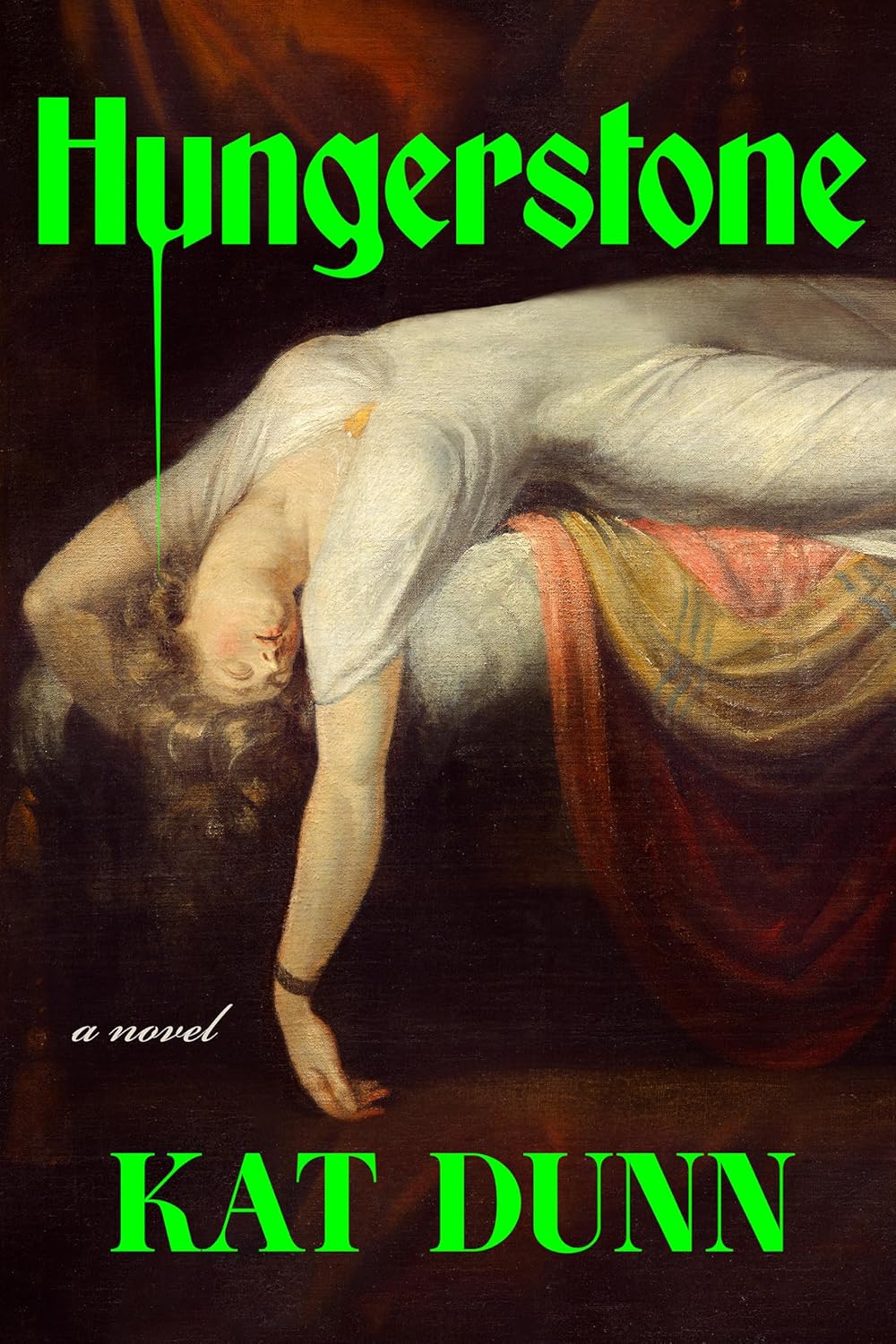Review of Hungerstone by Kat Dunn

Hungerstone
Kat Dunn
Zando, 2025, 336 pages
$28.00
Reviewed by Sydney Minor
“What is a monster but a creature of agency?” (237). This is the central question posed by Kat Dunn’s Hungerstone. A retelling of the 1872 lesbian vampire novella Carmilla, Dunn’s novel takes the gothic and sapphic essence of the original and expands it into a fully-fledged, well-rounded work that draws the reader in with its elegant prose and brooding atmosphere.
The novel follows Lenore, an aristocratic woman burdened by past tragedy and discontent in her present life and marriage. When she travels north, to Sheffield, to prepare her husband’s manor for a hunting party, she encounters a mysterious woman named Carmilla, who has suffered a carriage accident. As their relationship deepens, Carmilla challenges Lenore to confront what she truly desires—and demands that she pursue it. The further Lenore falls under Carmilla’s spell, the more the border between agency and monstrosity blurs, leaving the reader to ponder what is right and wrong in the case of revenge, liberation, and forbidden love.
Dunn skillfully explores the dichotomy between fear and desire, using the constrained agency of Victorian women as a lens through which to examine sapphic longing. Lenore’s character wants more in life; she wants to have more power than presiding over houses, staff, and guests, but she also feels a longing that is deeper, more personal, and more taboo. The novel includes questions of repression, identity, and whether reclaiming control over one’s life—especially as a woman in a patriarchal world—can ever be free from violence.
At times, the novel suffers from over-explanation, particularly concerning Lenore’s backstory and how it informs her current behavior. The occasional flashbacks often feel out of place, not adding much to the story and occasionally interrupting the narrative momentum. Additionally, the supporting characters can feel one-dimensional, serving more as props than participants. However, this also allows Carmilla’s seductive and enigmatic presence to stand out as a true highlight, drawing the reader in just as she draws Lenore in.
Rich in atmosphere and emotional complexity, the novel oozes with darkness, longing, and seduction, making Hungerstone a worthy and haunting successor to the Carmilla story.
Sydney Minor (she/her) is a New York-born, London-based writer and musician interning with Sinister Wisdom. She recently completed her undergraduate studies at the Royal College of Music and will begin a master’s in musicology at Cambridge University this autumn, with a focus on the intersection of queer studies and twentieth-century opera.
"Empowerment comes from ideas."
― Charlene Carruthers
"Your silence will not protect you."
— Tourmaline
"Gender is the poetry each of us makes out of the language we are taught."
— Leila Raven


